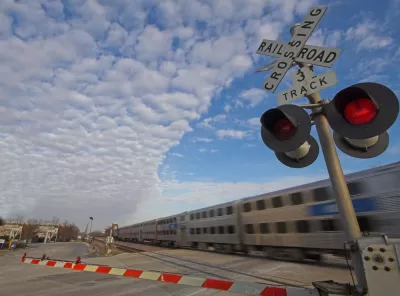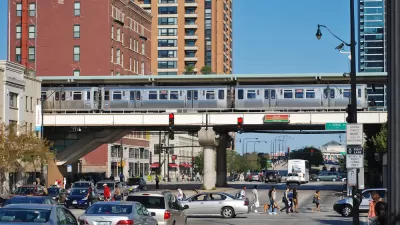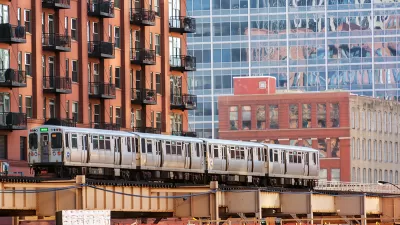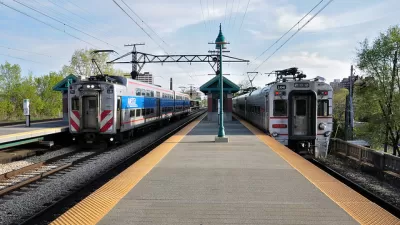The Red Line extension to 130th is still unfunded and a universal Chicago fare card hasn’t materialized, but in the immediate term, the Metra can run more trains and charge lower fares to help get the South Side moving.

South Side Chicagoans lack the transportation resources enjoyed by their neighbors farther north. There are fewer bike lanes, many of the roads are in worse shape and they don’t have as robust a public transit service as North Siders enjoy. An editorial by the Chicago Tribune Editorial Board argues that the fastest way to address the issue is to improve service on the Metra Electric Line. The editorial contends that, while they would like to see the city get on a one-payment card system for all the areas and transit services and the Red Line extended, the expansion of Metra service on the Electric Line could happen faster.
"Metra has already agreed to build a new Electric Line station at 95th Street, as well as a parking facility on the campus of nearby Chicago State University," the editorial points out. The newspaper argues the service should go beyond these efforts by increasing the number trains they run and matching the CTA’s lower fares.
Importantly, the Metra Electric Line could more easily increase the number of trains it runs than other Metra lines because, unlike other lines, Metra owns those tracks and doesn’t share them with freight rail. The Tribune argues that lower fares and better service will increase ridership on the Electric Line, pointing to a study Cook County conducted on the matter, additional fare revenue could help cover some of the additional costs of this service, but more importantly, in the view of the piece’s authors, it would get more people where they need to go.
FULL STORY: Editorial: A smart plan to help Metra serve the South Side better

Planetizen Federal Action Tracker
A weekly monitor of how Trump’s orders and actions are impacting planners and planning in America.

Congressman Proposes Bill to Rename DC Metro “Trump Train”
The Make Autorail Great Again Act would withhold federal funding to the system until the Washington Metropolitan Area Transit Authority (WMATA), rebrands as the Washington Metropolitan Authority for Greater Access (WMAGA).

The Simple Legislative Tool Transforming Vacant Downtowns
In California, Michigan and Georgia, an easy win is bringing dollars — and delight — back to city centers.

The States Losing Rural Delivery Rooms at an Alarming Pace
In some states, as few as 9% of rural hospitals still deliver babies. As a result, rising pre-term births, no adequate pre-term care and "harrowing" close calls are a growing reality.

The Small South Asian Republic Going all in on EVs
Thanks to one simple policy change less than five years ago, 65% of new cars in this Himalayan country are now electric.

DC Backpedals on Bike Lane Protection, Swaps Barriers for Paint
Citing aesthetic concerns, the city is removing the concrete barriers and flexposts that once separated Arizona Avenue cyclists from motor vehicles.
Urban Design for Planners 1: Software Tools
This six-course series explores essential urban design concepts using open source software and equips planners with the tools they need to participate fully in the urban design process.
Planning for Universal Design
Learn the tools for implementing Universal Design in planning regulations.
Smith Gee Studio
City of Charlotte
City of Camden Redevelopment Agency
City of Astoria
Transportation Research & Education Center (TREC) at Portland State University
US High Speed Rail Association
City of Camden Redevelopment Agency
Municipality of Princeton (NJ)





























